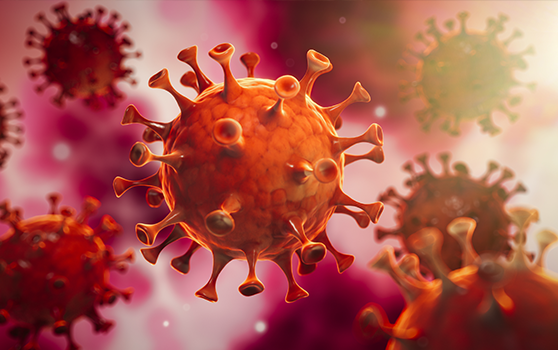
COVID-19 has been shown to pass easily from person to person via infected respiratory droplets, especially over distances of two metres or less. This has led to the rapid spread of the disease through human populations worldwide.
However, after several international reports of zoo and companion animals becoming infected with COVID-19, pet owners have understandably become concerned about the possibility of transmitting the disease to their beloved cats. Here’s what the current research indicates regarding COVID-19 and cats.
Can cats get COVID-19?
A small number of cats and dogs in several overseas countries have been found to be infected with COVID-19. In the vast majority of these cases, laboratory testing confirmed that the disease was likely passed from an infected human family member to the pet.
In the cases of the big zoo cats (lions, tigers, pumas, cougars and snow leopards) who became sick with COVID-19, it is suspected that these animals contracted the virus from infected zookeepers.
Is COVID-19 the same as the pre-existing cat and dog coronaviruses?
Feline coronavirus (FCoV) and canine coronavirus (CCoV) are not the same as COVID-19. FCoV and CCoV are species-specific, meaning they only affect cats and dogs (respectively), and can’t infect humans. Feline and canine coronavirus are relatively common, and usually cause signs of tummy upset in kittens and puppies.
Would my cat get sick if infected by COVID-19?
In the very small number of documented COVID-19 infections in pet cats so far, cats showed either no signs of outward illness, or relatively mild respiratory unwellness. It is considered extremely unlikely that pets will develop serious illness due to COVID-19 infection.
Could my cat spread COVID-19?
Whilst small numbers of pets have tested positive for the virus, there is currently no evidence that cats can spread COVID-19 to humans. It does, however, appear that infected cats may spread the virus to other cats via respiratory droplets, under experimental settings.
Scientific research so far indicates that the risk of cats or dogs spreading COVID-19 to humans appears to be extremely low. The primary source of COVID-19 infection is still close human-to-human contact, with no evidence that pets play a significant role, if any, in human infection.
Should I take any safety precautions with my cat?
The current advice for pet owners with suspected or confirmed COVID-19 is to treat their pet as they would a human family member to protect them from possible infection. This includes precautions such as:
- If possible, have another family member care for your cat whilst you’re sick, so you can quarantine away from your pet.
- Socially distance from your cat e.g. do not handle them or cuddle with them.
- If you have to care for your pet whilst you’re ill, follow recommended hand hygiene and mask usage protocols for yourself (not your cat!).
There is no evidence that the virus can be spread via pet fur or skin, so do not try to “disinfect” your cat (e.g. with the use of hand sanitiser), as this is unnecessary and potentially harmful to them.
We are still learning about COVID-19 in relation to animals, with further scientific studies being undertaken internationally. Current evidence indicates that regarding our pets and COVID-19, normal hygiene protocol is all that is needed, and there is no cause for alarm.
